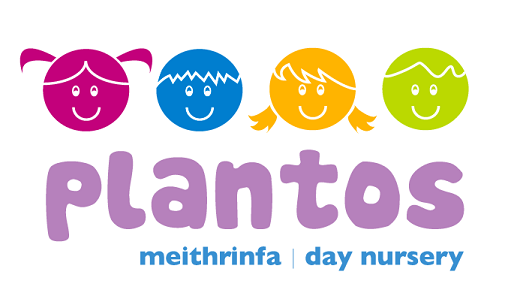“Empowering Independence: The Impact of Self-Serve Solutions on Development”
As life has largely returned to pre-covid normalcy, we have spent the last six months reintroducing and embedding self-serve meal times with our Sprinters. This initiative is part of the curriculum for Wales, aiming to nurture children into healthy, confident individuals and informed citizens of Wales and the world.
Our staff have been diligently guiding children in making positive choices about their meals and educating them on maintaining a healthy lifestyle.
The children were involved in creating our simple self-serve rules:
- We should try a bit of everything.
- We should leave enough for our friends.
Children are reminded that there are always spares available if they have an empty plate and are still hungry. These two rules alone encourage collaboration among the children, promoting turn-taking and portion control. Initially, children would fill their plates as much as they could, but over time, they have learned to understand portion sizes better. This change has positively impacted food waste, as children now only take the amount they are happy to eat.
Serving their own food fosters a sense of independence, pride, belonging, and ownership over their meals, which in turn boosts their self-esteem. It also makes them more willing to try new foods, sparking curiosity about the origins of different foods, leading to discussions about various countries, farming processes, and how food is grown.
Allowing children to self-serve also provides ample opportunities to practice fine motor skills. They use large spoons to scoop items out of bowls, tongs to grasp items, a pincer grasp to open yogurt lids, and small jugs to pour liquids. These activities enhance their concentration and perseverance, as they can be challenging and require time to master.
Moreover, self-serving aids in the development of mathematical skills, spatial awareness, and understanding of size and positioning concepts. Children count the items on their plates, compare sizes, and follow instructions like, “Can you put the pear next to the banana?” or “Can you put the curry on your rice?” These tasks integrate learning into everyday activities seamlessly.
The benefits of self-serving are vast, impacting children’s holistic development significantly. It’s incredible to see how one simple life skill can have such a profound effect. We are extremely proud of our Sprinters and their progress on this transitional journey with self-serve. To further support and aid their development, we are now looking at providing more opportunities for children to help prepare meals, such as peeling and cutting.
We believe that fostering these skills early on will contribute to the development of healthy, confident individuals who are well-prepared to make informed choices and contribute positively to society.



“Grymuso Annibyniaeth: Effaith Datrysiadau Hunan-Weini ar Ddatblygu”
Gan fod bywyd wedi dychwelyd i normalrwydd cyn-covid i raddau helaeth, rydym wedi treulio’r chwe mis diwethaf yn ailgyflwyno ac ymgorffori amseroedd prydau hunan-weini gyda’n Sbrintwyr. Mae’r fenter hon yn rhan o’r cwricwlwm i Gymru, gyda’r nôd o feithrin plant yn unigolion iach, hyderus a dinasyddion gwybodus Cymru a’r byd.
Mae ein staff wedi bod yn tywys plant yn ddiwyd i wneud dewisiadau cadarnhaol am eu prydau bwyd a’u haddysgu ar gynnal ffordd iach o fyw.
Roedd y plant yn rhan o greu ein rheolau hunan-weini syml:
1. Dylen ni roi cynnig ar ychydig o bopeth.
2. Dylen ni adael digon i’n ffrindiau.
Atgoffir plant fod bwyd sbâr ar gael bob amser os oes ganddynt blât gwag a’u bod yn dal i fod eisiau bwyd. Mae’r ddwy reol hon yn unig yn annog cydweithredu ymhlith y plant, gan hyrwyddo cymryd tro a rheoli faint sydd are u platiau. I ddechrau, byddai’r plant yn llenwi eu platiau gymaint ag y gallent, ond dros amser, maent wedi dysgu maint y ddogn yn well. Mae’r newid hwn wedi cael effaith gadarnhaol ar wastraff bwyd, gan mai dim ond y swm y maent yn hapus i’w fwyta y mae’r plant bellach yn ei gymryd.
Mae gweini eu bwyd eu hunain yn meithrin ymdeimlad o annibyniaeth, balchder, perthyn, a pherchenogaeth dros eu prydau bwyd, sydd yn ei dro yn hybu eu hunan-barch. Mae hefyd yn eu gwneud yn fwy parod i roi cynnig ar fwydydd newydd, gan sbarduno chwilfrydedd am darddiad gwahanol fwydydd, gan arwain at drafodaethau am wahanol wledydd, prosesau ffermio, a sut mae bwyd yn cael ei dyfu.
Mae caniatáu i blant weini eu bwyd eu hunain hefyd yn darparu digon o gyfleoedd i ymarfer sgiliau echddygol cain. Maen nhw’n defnyddio llwyau mawr i gasglu bwyd o fowlenni, tongs i afael mewn eitemau, gafael pincer i agor caeadau iogwrt, a jygiau bach i arllwys hylifau. Mae’r gweithgareddau hyn yn gwella eu canolbwyntio a’u dyfalbarhad, gan y gallant fod yn heriol.
At hynny, mae hunan-weini wedi datblygu sgiliau mathemategol, ymwybyddiaeth ofodol, a dealltwriaeth o gysyniadau maint a lleoli. Mae’r plant yn cyfrif yr eitemau ar eu platiau, yn cymharu meintiau, ac yn dilyn cyfarwyddiadau fel, “Allwch chi roi’r gellyg wrth ymyl y banana?” neu “Allwch chi roi’r cyri ar eich reis?” Mae’r tasgau hyn yn integreiddio dysgu i weithgareddau bob dydd.
Mae manteision hunan-weini yn enfawr, gan effeithio ar ddatblygiad cyfannol plant yn sylweddol. Mae’n anhygoel gweld sut y gall un sgil bywyd syml gael effaith mor ddwys. Rydym yn hynod falch o’n Gwibwyr a’u cynnydd ar y daith drawsnewidiol hon. Er mwyn cefnogi a chynorthwyo eu datblygiad ymhellach, rydym nawr yn edrych ar ddarparu mwy o gyfleoedd i blant helpu i baratoi prydau bwyd, fel plicio a thorri.
Credwn y bydd meithrin y sgiliau hyn yn gynnar yn cyfrannu at ddatblygu unigolion iach, hyderus sy’n barod i wneud dewisiadau gwybodus a chyfrannu’n gadarnhaol at gymdeithas.

